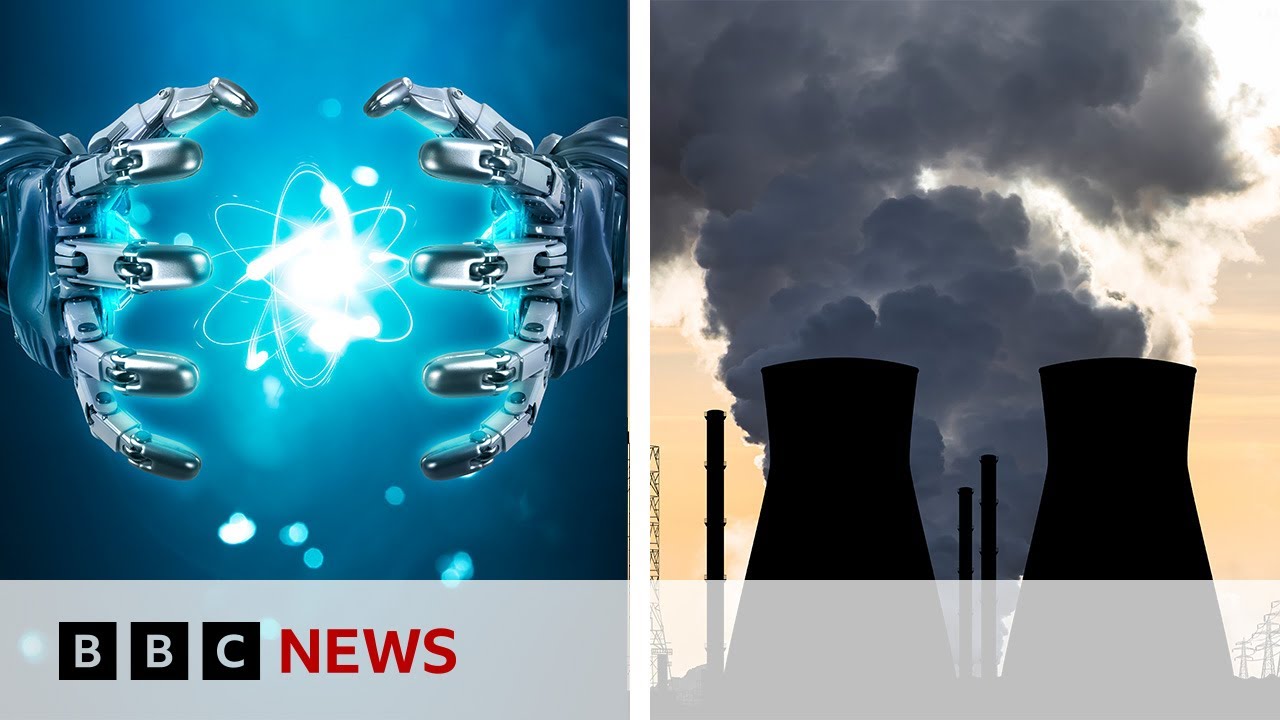The BBC News segment discusses how major tech companies like Amazon, Google, and Microsoft are turning to nuclear energy to meet the rising electricity demands of artificial intelligence, which could match the energy needs of small countries by 2027. Experts emphasize the importance of balancing AI development with environmental considerations, advocating for transparency in energy usage and mindful deployment of AI technologies to ensure sustainability.
In this segment of BBC News’ “AI Decoded,” the discussion centers around the increasing energy demands of artificial intelligence (AI) and how major tech companies like Amazon, Google, and Microsoft are turning to nuclear power as a potential solution. With projections indicating that the electricity consumption for AI could rise significantly—potentially matching the energy needs of small countries by 2027—these companies are investing billions into nuclear energy to meet their growing requirements while striving for carbon neutrality.
The conversation highlights the challenges of current power grids, which are not equipped to handle the anticipated surge in energy demand from AI technologies. Experts emphasize that while renewable energy sources like solar and wind are essential, nuclear power is being considered as a viable alternative due to its ability to provide consistent energy output. This shift towards nuclear energy raises concerns about prioritizing AI development over climate change initiatives, as the environmental impact of increased energy consumption must be carefully managed.
Dr. Sasha Luchon, an AI and climate expert, discusses the efficiency of AI applications and the significant energy consumption associated with large language models and chatbots. While AI has the potential to address climate issues, it cannot do so effectively if it consumes excessive energy itself. The need for a more mindful approach to AI deployment is emphasized, suggesting that companies should consider the energy implications of their AI applications and explore ways to reduce their overall energy consumption.
The segment also touches on the importance of transparency regarding energy usage in AI technologies. Consumers and businesses alike should be informed about the energy costs associated with AI services, enabling them to make more sustainable choices. As tech giants invest in nuclear power, there is a call for regulatory frameworks to ensure equitable access to energy resources and to balance the needs of AI development with broader societal and environmental goals.
Finally, the discussion transitions to the lighter topic of Halloween, where AI is used to create spooky stories. The segment features a demonstration of OpenAI’s advanced voice capabilities, showcasing how AI can engage users in storytelling. While the technology offers entertaining and supportive interactions, experts caution against relying on AI for emotional support, particularly for vulnerable individuals. The segment concludes with reflections on the future of AI and its integration into daily life, highlighting both the potential benefits and the need for careful consideration of its implications.
